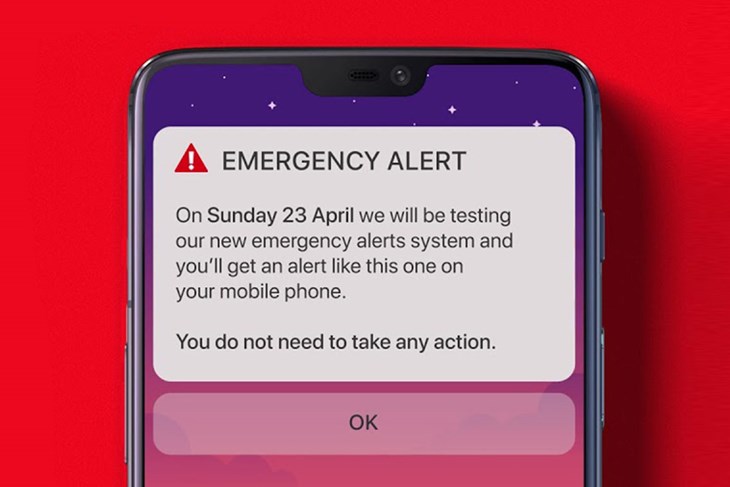Mobile phones in the United Kingdom will be triggered to sound a loud, 10-second siren alert on Sunday afternoon as the British government trials its new emergency alert system.
The system, similar to those already trialed in the United States, the Netherlands, and Japan, will sound the alarm at 3 p.m. to all 4G and 5G mobile phones.
It is expected to be used in the future to warn Brits of climate change disasters, including extreme weather events such as flash floods or wildfires. It may also be used to alert users of terror attacks or civil defense emergencies.
The message will read: “This is a test of Emergency Alerts, a new U.K. government service that will warn you if there’s a life-threatening emergency nearby.
“In a real emergency, follow the instructions in the alert to keep yourself and others safe. Visit gov.uk/alerts for more information. This is a test. You do not need to take any action.”
Many campaigners are questioning both the timing of the alert — which is likely to cause panic for many unassuming people and could catch drivers unaware — and the extent to which it encroaches too much on people’s lives.
Domestic abuse charities have warned of the effect it may have on victims who possess a secret second mobile phone as a lifeline aid.
“Our concerns are centered on the very real risk to survivors of domestic abuse who may have secret or secondary phones hidden within the home, which they must ensure are not discovered by their perpetrators,” said Emma Pickering, a spokesperson for the domestic violence charity Refuge.
Lucy Hadley from Women’s Aid, which offers a helpline for domestic abuse victims, added: “We are working with our members and using our direct services to ensure that survivors who we come into contact with will be informed, and know how to opt out.
“We urge the Government to ensure the safety of survivors is central to the roll-out of this scheme, particularly through raising awareness about how to opt out.”
British motoring association, the AA, also criticized the timing of the alert, suggesting that less-competent and particularly elderly drivers who travel more often on the weekends could be startled by the alert.
Age UK also expressed concern for how elderly people may react to such an alert. “It’s really important that we all know what to expect, especially those older people who might be confused or worried if their phone goes off unexpectedly on Sunday afternoon,” a spokesperson for the charity said.
A senior Conservative politician told the Daily Mail newspaper: “We want a society that is less intrusive, rather than more intrusive.
“Of course, it’s entirely possible that this will alarm people who did not know it was coming. It seems very dubious to me, and the best I can say about it is that it is a strange thing to be interrupting people’s Sunday afternoons in this way.”






